Education
We are committed to creating value for our students, offering a safe study environment and helping shape their future careers. In today’s economic and political climate, young graduates need skills that go beyond content knowledge. Now more than ever, employers are looking for responsible, collaborative and productive global citizens who master non-technical skills such as problem-solving, critical thinking and written communication. Together with past, present and future students we will light up 2024 and reimagine education!
Reimagining Education
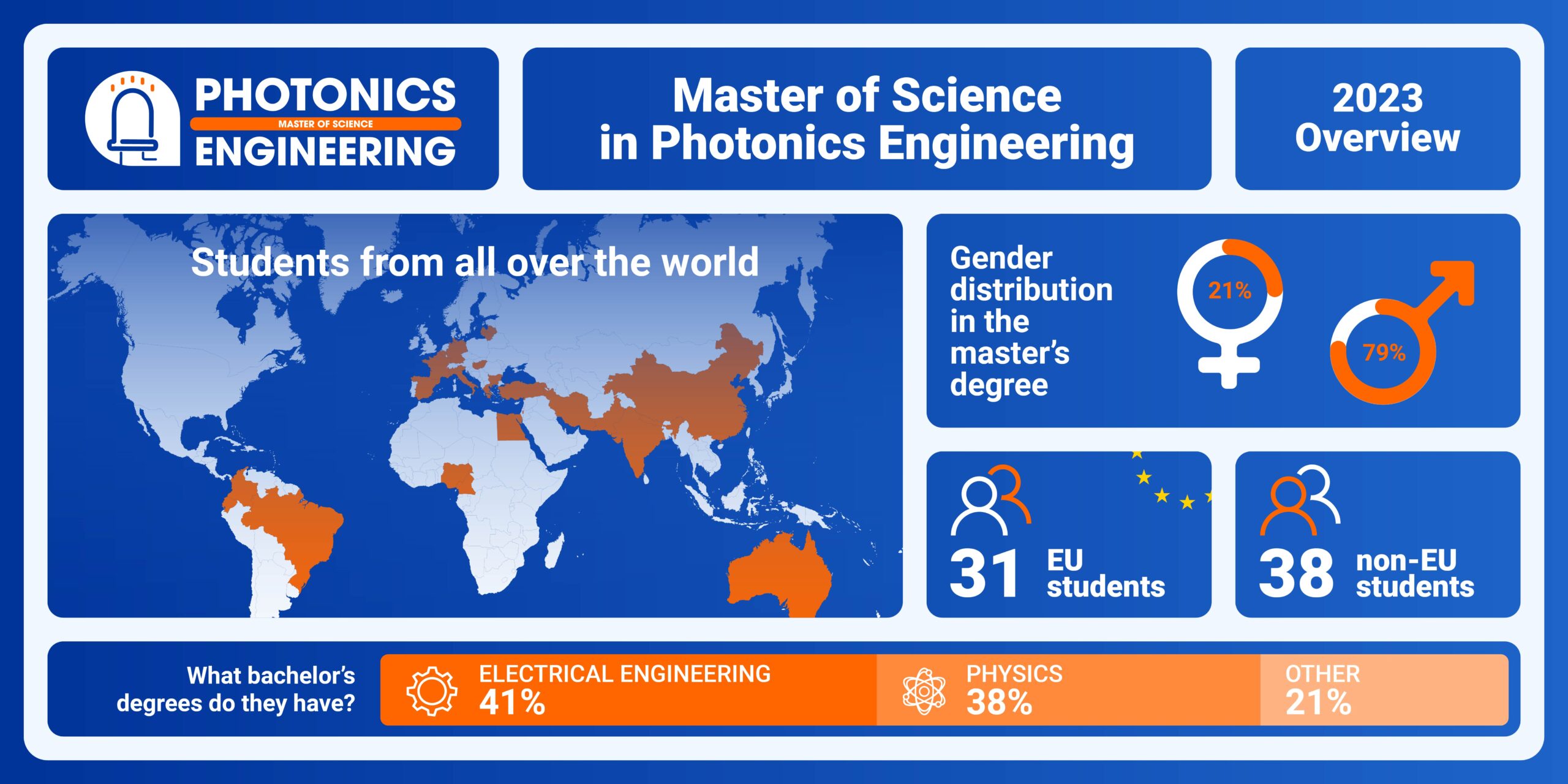
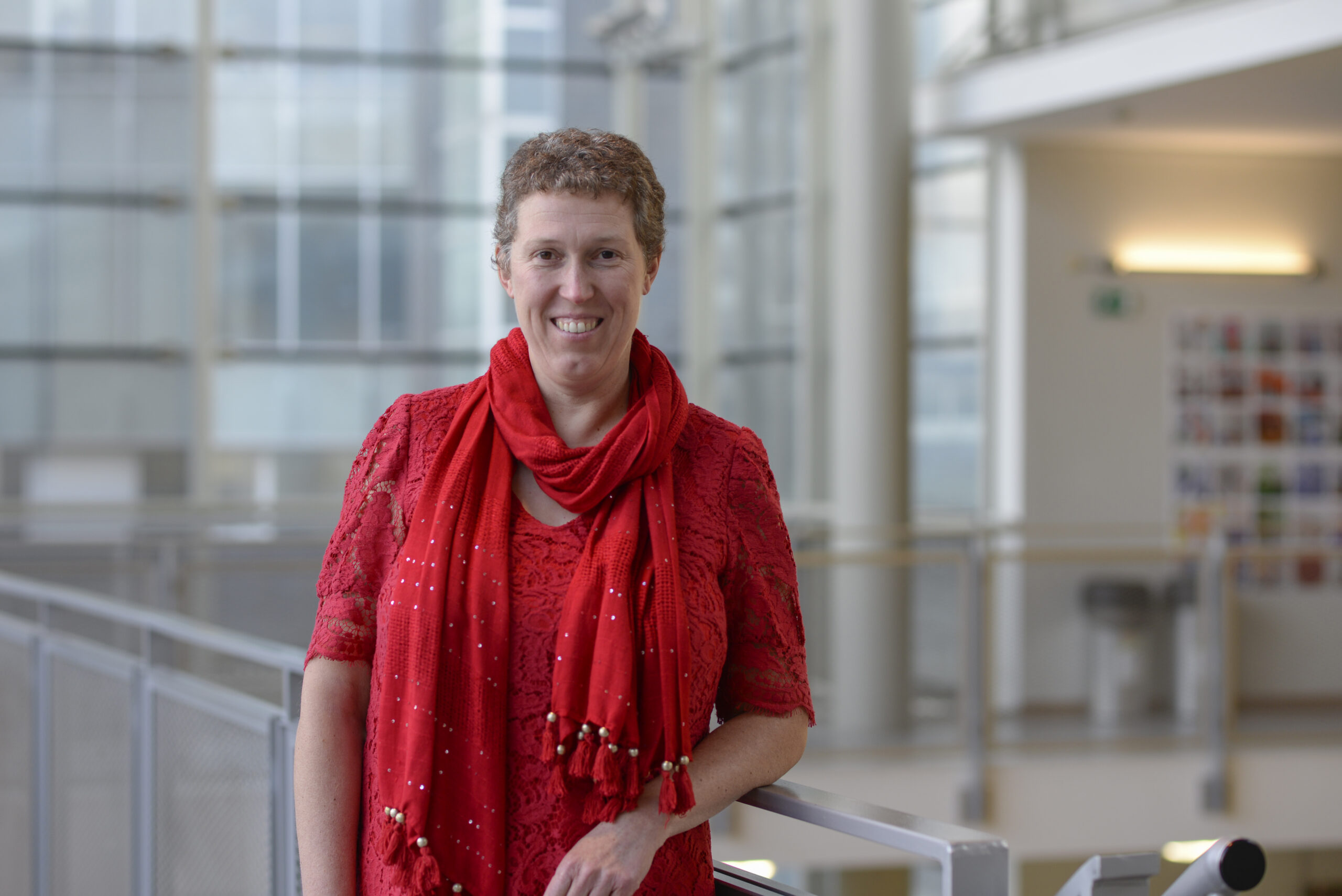
2023 had a lot to offer. At an amazing Light Night at VUB, we learned about the Einstein Telescope project, Gravitational Waves & Drug Monitoring. The Networking Event allowed us to connect with industry leaders and follow interesting workshops on CV writing and creative thinking! In September, we welcomed a new group of master students with a fun kick-off in Ghent and in October, a dozen new Photonics Engineers were honoured at the Grand Place in Brussels during VUB’s Graduation Ceremony!
Heidi Ottevaere | Programme Director
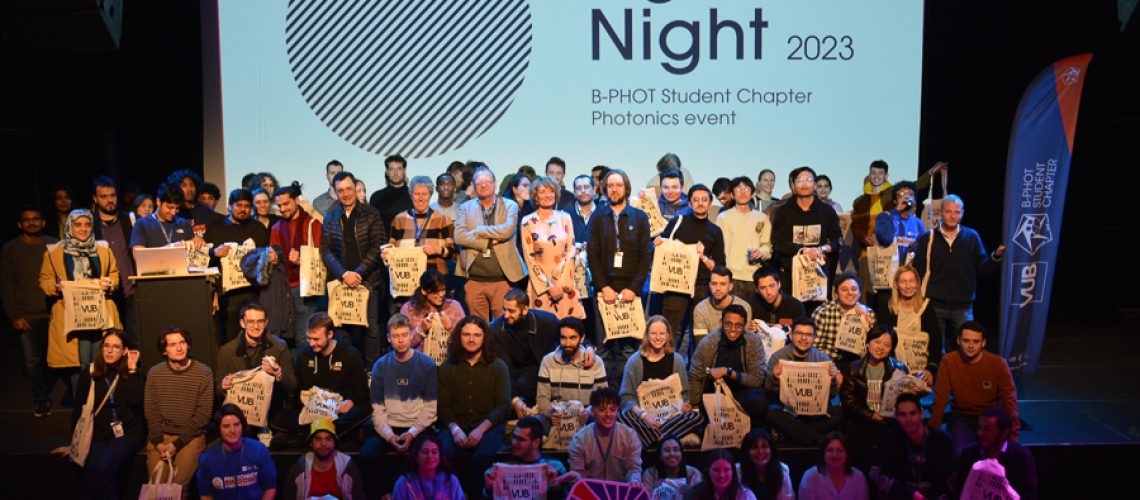
Light Night 2023
International Day of Light: Talks about Gravitational Waves & Drug Monitoring.
Read more >>
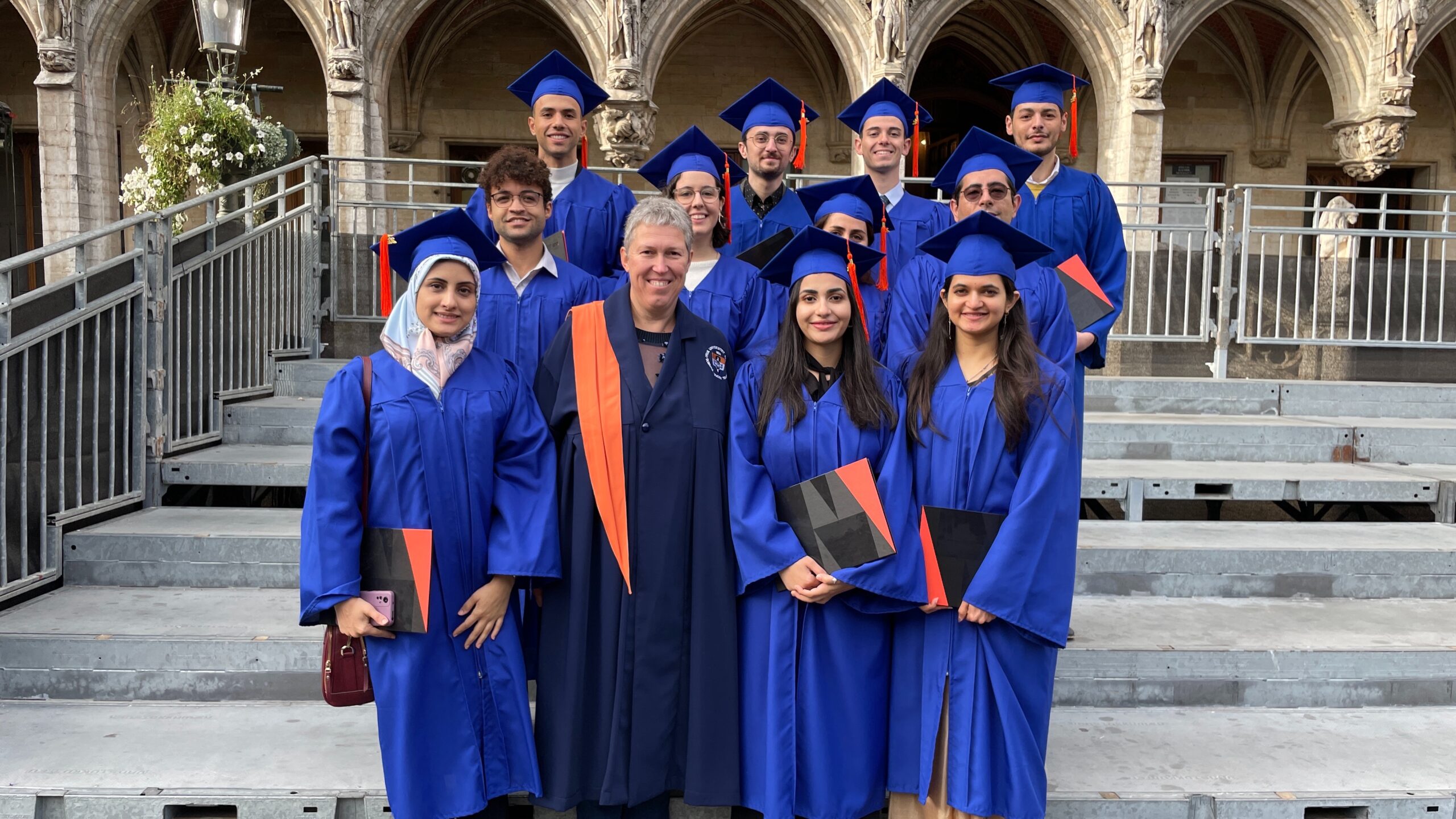
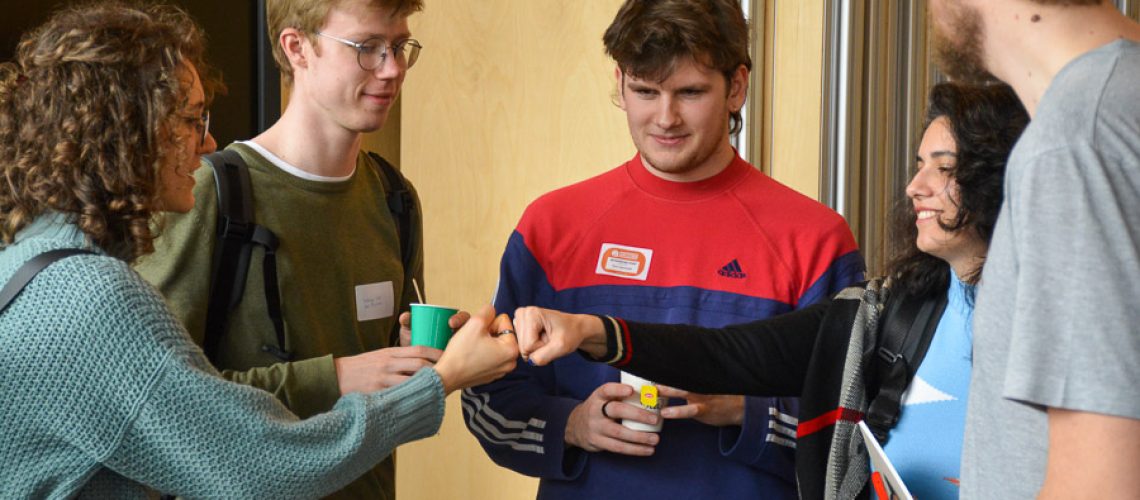
Networking Event
Connecting with industry leaders and building strong CV writing skills.
Read more >>
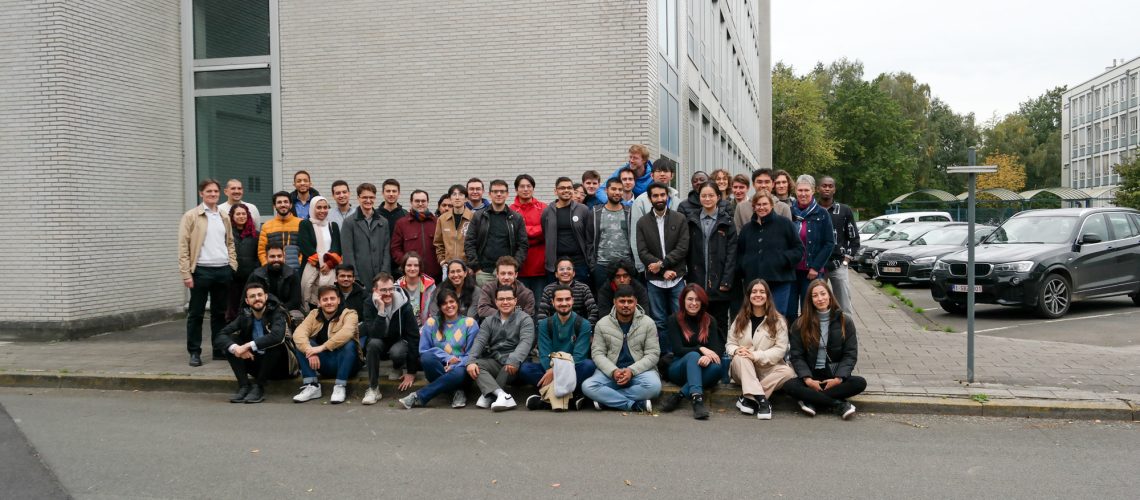
Student Kick-off Ghent
Master students celebrate the new academic year together and get to know each other.
Read more >>

Previous
Next

Internships & Research Stays
Each summer, we send out our master’s students on an internship or research stay! They go to companies and institutes all over the world to apply the things they have learned during the master’s programme!
Master Students Parto, Seán, Alamgir, Racha and Matéo were so kind to take us with them on their trips to Italy, the USA, Belgium, Japan and Australia. They took over our Instagram accounts for several weeks, giving us an amazing insight into what it means to go on a foreign adventure! Read the blog posts, watch our Instagram highlights or listen to the PHOTCAST episode with Racha and Parto.
BUILDING
BLOCKS
Choosing where and what to study is one of the most important decisions you will make in your life. Before you make your final decision you should answer two questions: What is my passion? What are my future ambitions?
If the answers to those questions contain the words engineering, physics, photonics, multidisciplinary, international, innovative and future proof then you’ve come to the right place!
Our Master of Science in Photonics Engineering is an English-taught 2-year master programme that leads to a joint degree from Vrije Universiteit Brussel and Ghent University. It’s a challenging engineering programme that offers core photonics courses in combination with a wide range of photonics electives and multidisciplinary modules.
We offer our students traditional classical lectures and practical/hands-on lab training with problem-based assignments, guest lectures from industry representatives (Commscope/Melexis/Sony), case studies & international internships (University of Sydney/University of Arizona/ Microsoft/ICFO), all supported by an international team of lecturers with a high-level research background and a vast worldwide industry network.
The Photonics curriculum is constructed around five key building blocks: In master year one, students get in-depth training in core Photonics courses (1): course modules covering all the essential knowledge and skills (at master level) of a Photonics engineer. In addition, students can add Advanced Photonics Electives (2) to their package, covering specialized subjects in the field of Photonics. In the second year, students choose a dedicated multi/interdisciplinary module/minor (3), e.g. Electronics and Information Technology, Physics and Materials, Business Engineering, Modelling, Measurement and Control and Life Sciences. This can be combined with an industrial or academic (international) internship (4). To complete the master programme students submit and defend a master thesis project (5) in the final semester.
This multidisciplinary approach, combined with high-level training in labs and a strong link with industry worldwide, has proven to boost the employment prospects of our graduates to a maximum in innovative industries and research domains such as biotechnology, health care, green energy and environmental monitoring, homeland security, aerospace, ICT and Industry 4.0.

Heidi Ottevaere
Programme Director VUB
Lab Courses in Photonics Research
In the second semester of the first master year, students get thorough practical training on performing photonics experiments. This is in the framework of the course ‘Laboratories in Photonics Research’. The aim of the course is to teach the students the basic concepts of research methodology and subsequently to apply those in lab exercises based on knowledge acquired in the courses on photonics, lasers, microphotonics and optical materials.
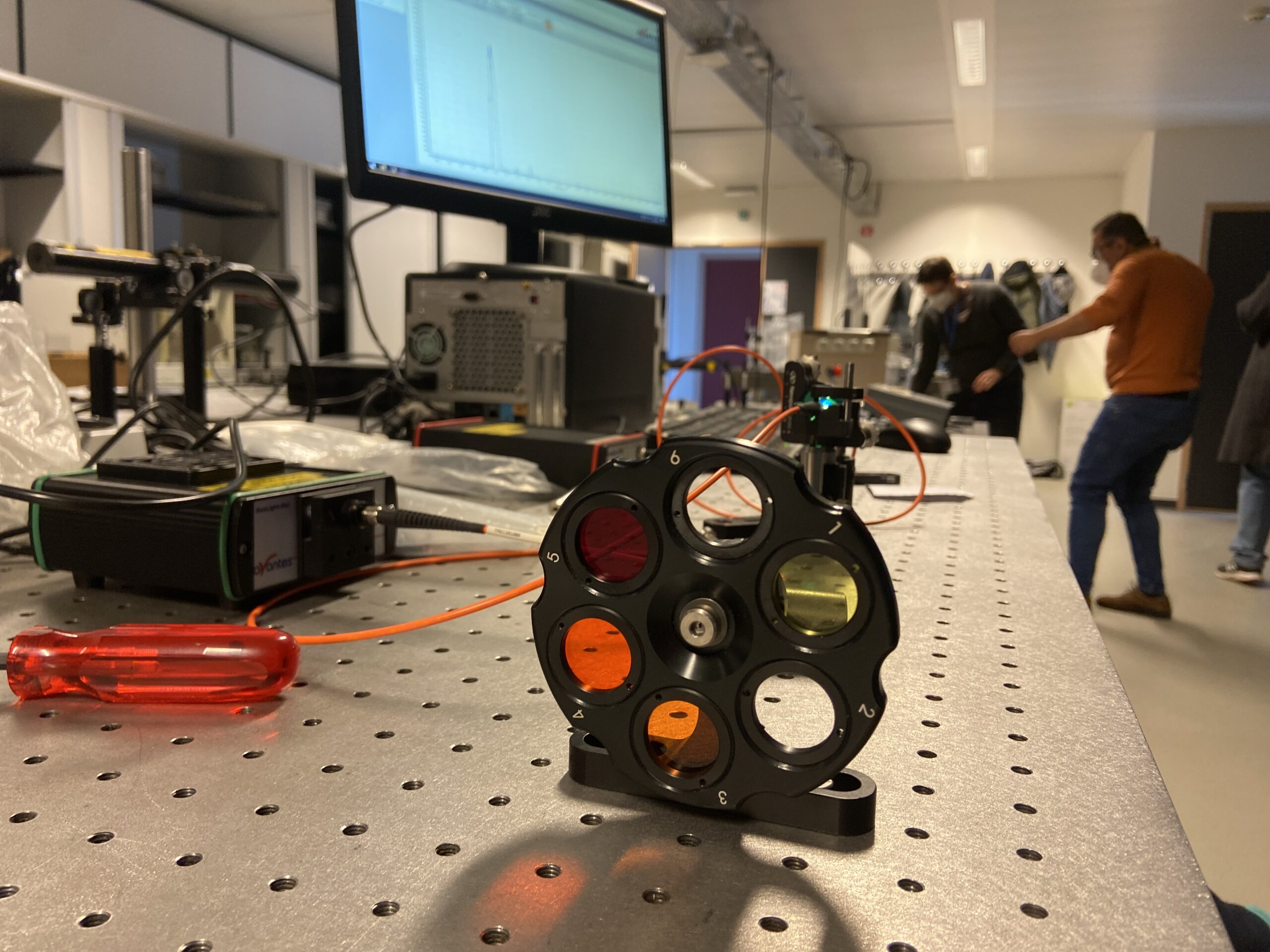
The covered research methodology topics include consulting sources and performing a literature study (scientific papers and patents), correctly analyzing measurement data and displaying the latter in graphs, orally presenting scientific results and writing them down into a research paper. Next, these techniques are further illustrated through four research topics to be chosen by the student and related to the ongoing work of the different research groups involved in the photonics master program. In each case, the promoter first situates the topic in the broader scope of the research group and subsequently the student gets more familiar with the topic through demonstrations and hands-on training, given by a PhD student working on the topic.
In this way the student gains an overview of the research ongoing in the groups involved in the photonics master program. Finally, the student applies the knowledge gained in the first two parts of the course in lab exercises through which he/she will acquire the expertise and insight needed to operate laboratory and demonstrator setups. These include elementary skills, which will allow the student to work in a team with optical elements and optical systems and give him/her insight into the relevant optics theory. Both free-space optical systems (characterization of laser beams, 4f processor), and fiber-based and integrated optical systems (laser diodes, waveguides) are studied. The basic experiments are divided into 8 modules in which the core measurement techniques are covered.

Wendy Meulebroeck
Professor

